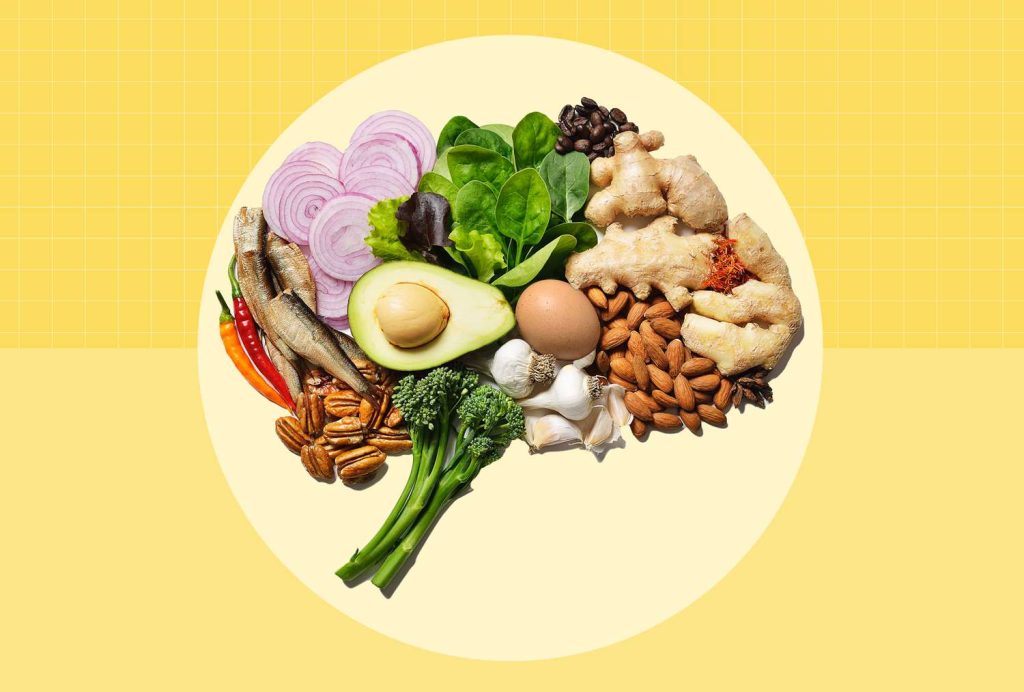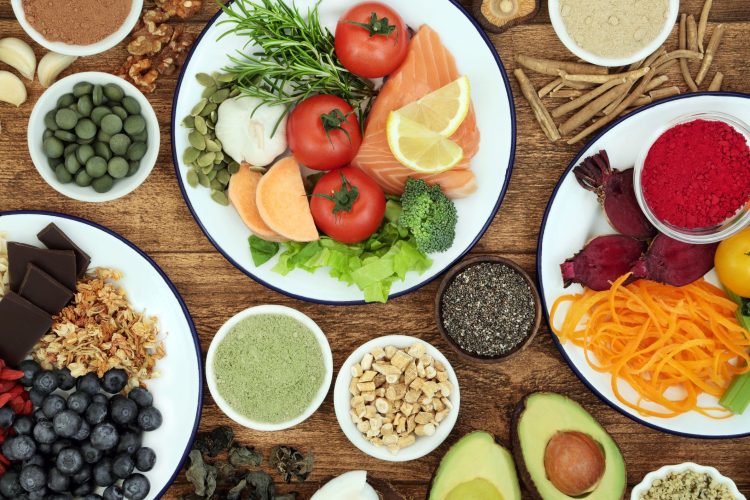In the ever-expanding conversation about mental health, one element remains astonishingly overlooked: our plates. While therapy, mindfulness, and exercise have become mainstream topics in emotional well-being, food—perhaps the most basic of human needs—still hides in the shadows of mental health discourse. Yet science is steadily unveiling what many cultures have long intuited: what we eat profoundly affects how we feel. Nutritional psychiatry, a relatively new field, bridges the gap between diet and brain function, revealing how certain foods can uplift mood, stabilize emotions, and even prevent or ease depression and anxiety. Food is not just fuel—it’s information, it’s medicine, and it may be one of the most accessible tools for mental wellness.
The Gut-Brain Axis: Why What You Eat Affects How You Feel
To understand how food influences mood, we must start with the gut-brain axis—a bi-directional communication system between your gastrointestinal tract and your central nervous system. The gut is home to trillions of microbes that influence everything from digestion to immune response and even brain chemistry. These microbes produce neurotransmitters like serotonin and dopamine, which are essential for mood regulation. In fact, around 90% of serotonin is produced in the gut, not the brain. This connection means that the state of your gut can directly affect your mental state.
When you feed your gut bacteria well—through fiber, fermented foods, and polyphenol-rich fruits and vegetables—they flourish and produce more mood-enhancing compounds. On the flip side, a diet high in processed foods, sugar, and trans fats can disrupt this balance, leading to inflammation and dysbiosis, which are associated with higher rates of anxiety and depression.
Omega-3 Fatty Acids: Nature’s Mood Stabilizers
Among the most studied nutrients for mental health are omega-3 fatty acids, particularly EPA and DHA, found in fatty fish like salmon, sardines, and mackerel. These essential fats are key components of brain cell membranes and play a role in reducing inflammation in both the brain and the body. Numerous studies have linked higher omega-3 intake with a reduced risk of depression and improved emotional resilience.
Plant-based eaters can turn to flaxseeds, chia seeds, and walnuts, though the plant-based form (ALA) is less efficiently converted to the beneficial EPA and DHA forms. In some cases, algae-based omega-3 supplements can bridge that gap.
Complex Carbohydrates: Balancing Energy and Mood
Carbohydrates often get a bad rap in diet culture, but when chosen wisely, they can be powerful allies for mental health. The brain relies on glucose for fuel, and carbohydrates help regulate serotonin production—a neurotransmitter associated with happiness and relaxation. The key lies in choosing complex carbs over simple ones. Whole grains, oats, sweet potatoes, legumes, and quinoa provide steady, slow-burning energy that stabilizes blood sugar and mood.
In contrast, refined carbs like white bread, pastries, and sugary cereals may cause blood sugar spikes followed by crashes, leading to irritability, fatigue, and brain fog. Maintaining balanced blood sugar levels is essential not just for physical health but for emotional equilibrium.
Antioxidants and Polyphenols: Fighting Oxidative Stress in the Brain
Just as oxidation ages the skin and damages organs, it can also harm brain cells. Oxidative stress, caused by free radicals, is increasingly linked to depression, anxiety, and cognitive decline. Enter antioxidants—compounds found in colorful fruits and vegetables that neutralize these harmful molecules.
Berries, especially blueberries and strawberries, are packed with flavonoids that protect brain cells and may even stimulate the growth of new neurons. Dark chocolate (with at least 70% cacao) is another rich source, offering both mood elevation and cognitive benefits when consumed in moderation. Leafy greens, beets, and cruciferous vegetables like broccoli also boast potent antioxidant properties.
Fermented Foods: Feeding Your Second Brain
If the gut is your second brain, fermented foods are its best friends. Yogurt with live cultures, kefir, kimchi, sauerkraut, miso, and tempeh introduce beneficial bacteria into the gut, supporting a diverse microbiome. A balanced gut microbiota helps reduce inflammation, improve nutrient absorption, and increase the production of mood-boosting neurotransmitters.
Emerging research even suggests that probiotics may help reduce symptoms of depression and anxiety, though more large-scale studies are needed. Still, incorporating fermented foods into your daily routine is a safe and delicious way to nurture your mental health from the inside out.
Protein-Rich Foods: Building Blocks of Brain Chemicals
Proteins are made of amino acids, many of which are precursors to neurotransmitters. For example, tryptophan is converted into serotonin, and tyrosine into dopamine. High-quality protein sources like eggs, poultry, tofu, tempeh, legumes, and Greek yogurt can support optimal neurotransmitter function.
Eggs, in particular, are nutritional powerhouses. They not only provide protein but also contain choline, which supports brain development and function. Including a variety of plant and animal-based protein sources ensures you’re getting the full spectrum of amino acids your brain needs to thrive.
Magnesium and Zinc: The Unsung Mineral Heroes
Magnesium plays a critical role in over 300 biochemical reactions in the body, including those related to brain function. It’s often referred to as the “relaxation mineral” due to its calming effect on the nervous system. A deficiency in magnesium has been linked to anxiety, irritability, and insomnia. Leafy greens, nuts, seeds, whole grains, and dark chocolate are excellent sources.
Zinc, meanwhile, influences neurotransmitter function and helps modulate the brain’s response to stress. Low zinc levels have been associated with depressive symptoms. Great sources include pumpkin seeds, chickpeas, cashews, and oysters.

Vitamin D: The Sunshine Vitamin for a Happier Mind
Vitamin D is unique in that it functions as both a vitamin and a hormone. It influences brain development, neuroplasticity, and immune function. Deficiency is common, especially in colder climates or for individuals who spend most of their time indoors. Research has linked low vitamin D levels with a higher risk of depression and seasonal affective disorder (SAD).
While fatty fish and fortified foods offer some dietary vitamin D, the most efficient source remains sunlight. When sun exposure is limited, supplementation may be necessary, but it should be done under medical guidance.
Hydration and Mental Clarity
Water may not have the flashiness of superfoods, but it is essential for cognitive function and mood regulation. Even mild dehydration can lead to poor concentration, fatigue, and irritability. The brain is about 75% water, and staying hydrated helps maintain optimal electrical energy and chemical balance. Herbal teas, infused waters, and water-rich fruits like cucumber and watermelon can also support hydration.
Caffeine and Alcohol: The Double-Edged Swords
Caffeine, in moderate amounts, can improve focus, alertness, and even mood. But too much—especially for those with anxiety—can lead to restlessness, jitteriness, and disrupted sleep. Listening to your body’s sensitivity and limiting intake to early in the day can help harness its benefits without the downsides.
Alcohol, on the other hand, is a known depressant. While a glass of wine may feel relaxing in the moment, excessive or regular consumption can disrupt neurotransmitter balance, increase anxiety, and affect sleep quality. For those managing mental health conditions, it’s often best to limit or avoid alcohol altogether.
Building a Brain-Healthy Plate: A Practical Approach
Putting this all into practice doesn’t mean obsessing over every bite. Instead, aim for diversity, balance, and color. A brain-healthy plate might include:
- Leafy greens and cruciferous vegetables for antioxidants and fiber
- Salmon or tofu for omega-3s and protein
- Quinoa or sweet potatoes for complex carbs
- A side of kimchi or yogurt for probiotics
- Blueberries or citrus fruits for vitamin C and polyphenols
- A sprinkle of pumpkin seeds for zinc and magnesium
- A square of dark chocolate for joy
This is not about restriction or guilt—it’s about nourishment. The goal is to feed your brain as well as your body, to feel more energized, balanced, and emotionally resilient.
Final Thoughts: Food as Daily Mental Self-Care
Mood-enhancing foods are not a silver bullet, nor are they a substitute for therapy or medication when needed. But they are a vital part of the mental wellness puzzle—accessible, empowering, and impactful. Every bite becomes an act of self-care. Every meal, a chance to support your emotional balance. Food doesn’t just keep you alive—it helps you thrive.
As awareness grows, so too should our relationship with what’s on our plate. It’s time to stop viewing food purely through the lens of calories or weight, and start seeing it as one of the most powerful tools for emotional and psychological wellness. When we eat with mental health in mind, we nourish not just our bodies but our entire sense of being.

















































